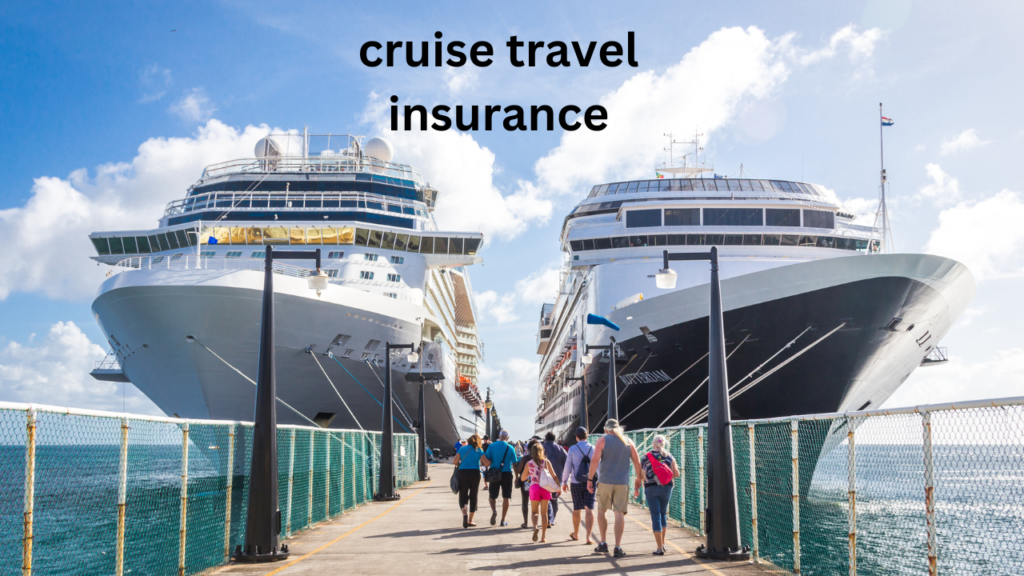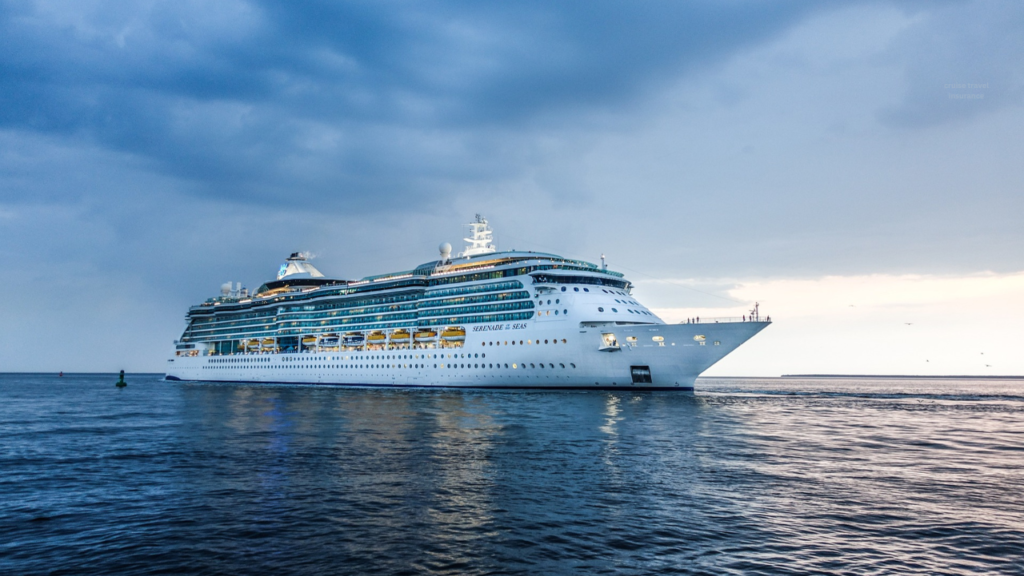Planning a cruise is an exciting experience. You get to look forward to exploring new destinations, relaxing at sea, and enjoying all the amenities a cruise ship offers. But as thrilling as cruises can be, unexpected events can throw a wrench into your dream vacation. From missing the ship’s departure to medical emergencies at sea, things can go wrong. That’s where cruise travel insurance comes in, offering protection and peace of mind for your trip.
In this guide, we’ll break down why you need cruise travel insurance, what it covers, and how to choose the best plan for your next adventure.
Why You Need Cruise Travel Insurance
A cruise might seem like the most relaxing vacation option, but it comes with some unique risks. Whether it’s dealing with a medical emergency while at sea or facing cancellations, cruise travel insurance can help you avoid financial loss when the unexpected happens.
Here’s why it’s so important:
1. Cruises Have Special Risks
Unlike regular vacations, cruises follow tight schedules. If your flight is delayed and you miss the ship’s departure, it’s not just about booking another flight; you may have to fly to the next port or forfeit the trip altogether. Insurance can cover these costs.
2. Medical Care at Sea is Limited
Health emergencies can happen anywhere, but they’re particularly tricky at sea. The medical facilities on cruise ships are often basic, and getting proper medical care might require an expensive emergency evacuation to a nearby hospital. Standard health insurance usually doesn’t cover these costs, but cruise travel insurance does.
3. Cancellations and Interruptions
If something unexpected happens, like a family emergency or a sudden illness, you might need to cancel your trip or cut it short. Without insurance, you could lose out on prepaid costs like your cruise fare, excursions, and onboard expenses.
4. Peace of Mind
Knowing that you’re covered for any mishaps lets you enjoy your cruise without constantly worrying about what could go wrong. Whether it’s a missed departure, lost luggage, or bad weather, insurance offers the reassurance that you’ll be taken care of.
What Does Cruise Travel Insurance Cover?
Not all travel insurance policies are the same, and cruise travel insurance is specially designed for the unique needs of cruisers. Here are the most common types of coverage you’ll want to make sure are included:
1. Trip Cancellation
Life happens, and sometimes you need to cancel your vacation. Cruise travel insurance will reimburse you for prepaid, non-refundable expenses if you need to cancel for a covered reason. Common reasons for cancellation include sudden illness, injury, or the death of a family member. In some cases, even severe weather can trigger trip cancellation coverage.
2. Missed Connection or Missed Departure
Flights can get delayed or canceled, and missing your ship’s departure is one of the biggest nightmares for cruise travelers. Insurance can help cover additional expenses if you need to catch up with the cruise at the next port of call. Some policies also include coverage for missed connections when switching from one form of transport to another (e.g., flight to cruise).
3. Medical Emergencies
Medical care on a cruise ship can be costly, especially for severe injuries or illnesses that require evacuation to a hospital on land. Cruise travel insurance often includes medical coverage for accidents or sudden illnesses that occur while on board. Some policies also cover emergency medical evacuation, which can otherwise cost tens of thousands of dollars.
4. Trip Interruption
Trip interruption coverage is similar to cancellation coverage but applies if your trip is cut short after it has already started. If you need to leave early due to an emergency, the policy will reimburse you for the unused portion of your trip, as well as additional transportation costs needed to return home.
5. Baggage Loss, Delay, or Damage
Losing your luggage or having it delayed can be frustrating, especially on a cruise where access to replacement items may be limited. Cruise travel insurance can cover the cost of essential items if your luggage is delayed or lost, and it can reimburse you for the value of items that are damaged or stolen.
6. Excursions and Onboard Activities
Many cruise travel insurance plans cover shore excursions, so you’re protected if an excursion gets canceled or disrupted. If you book an excursion through the cruise line, or independently, and it’s canceled or interrupted for any reason, the insurance can reimburse your costs. Additionally, some policies offer coverage for missed excursions due to medical issues.
7. Weather-Related Disruptions
Cruises are particularly vulnerable to weather-related disruptions. Hurricanes, storms, and other natural events can lead to changes in the ship’s route or delays. Cruise travel insurance often includes coverage for weather-related cancellations or interruptions, ensuring you aren’t left out of pocket if your plans are affected by bad weather.

Things to Keep in Mind When Picking Cruise Travel Insurance
Not all cruise travel insurance plans are the same.Here are a few things to keep in mind when choosing the right policy for your trip:
1. Comprehensive Coverage
Make sure your policy includes the key protections listed above, especially trip cancellation, medical emergencies, and missed connections. Some policies might only cover the basics, while others offer more comprehensive coverage for a slightly higher premium.
2. Pre-Existing Medical Conditions
If you have a pre-existing medical condition, make sure the policy includes coverage for it.Many policies will exclude coverage for conditions that existed before the trip unless you get a waiver or choose a policy that includes such coverage.
3. Excursion and Activity Coverage
If you plan on taking shore excursions or participating in adventure activities, make sure your policy covers those. Some standard travel insurance policies might not cover activities like snorkeling, zip-lining, or other popular cruise excursions.
4. Policy Limits
Understand the coverage limits for medical care, baggage loss, and trip cancellations. Some policies have low caps, which may not be enough to fully cover your expenses. Make sure the policy you choose has limits that are high enough to cover potential costs.
5. Compare Providers
It’s worth shopping around and comparing quotes from different insurance providers. Some cruise lines offer their own insurance, but you might find better rates or more extensive coverage from third-party insurers. Comparing plans allows you to find one that fits your needs and budget.
When Should You Buy Cruise Travel Insurance?
Ideally, you should purchase cruise travel insurance as soon as you book your trip. Many policies include pre-departure coverage, which means that you’ll be covered for cancellations or changes even before your trip starts. This gives you protection from the moment you commit to your vacation.
Conclusion
Cruise travel insurance is more than just an added cost; it’s a vital safety net that protects your investment and well-being. Whether you’re concerned about medical emergencies, missed connections, or trip cancellations, having the right insurance can save you from significant financial loss. Before setting sail on your next cruise, make sure to invest in a comprehensive cruise travel insurance policy. It’s the best way to ensure that your vacation stays smooth, no matter what challenges arise.


